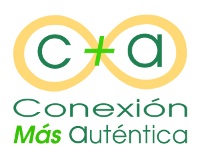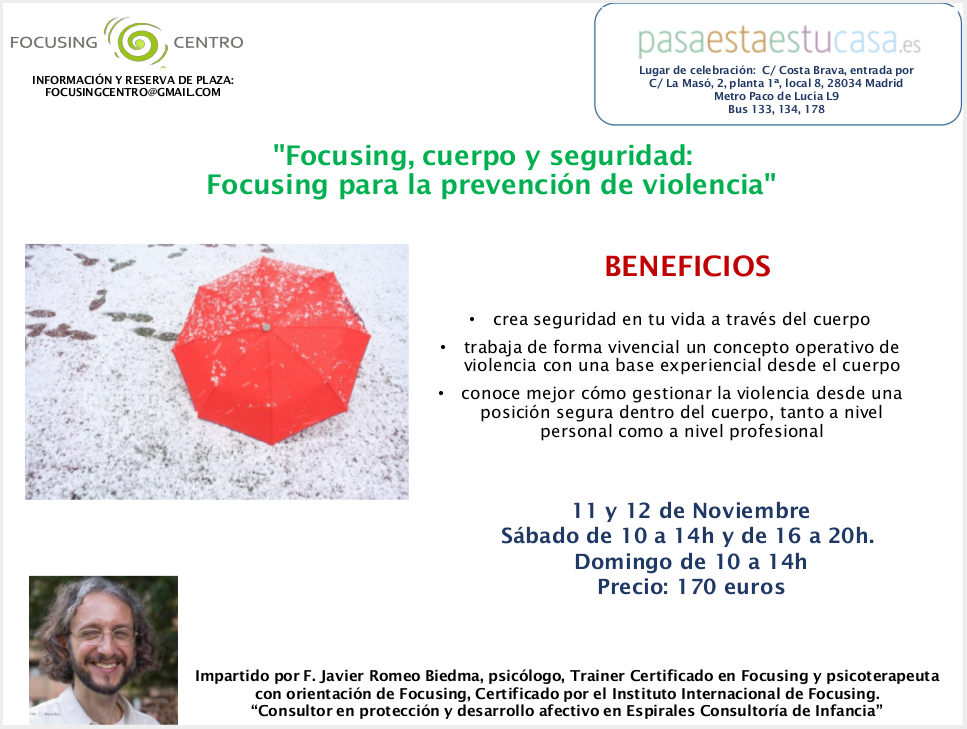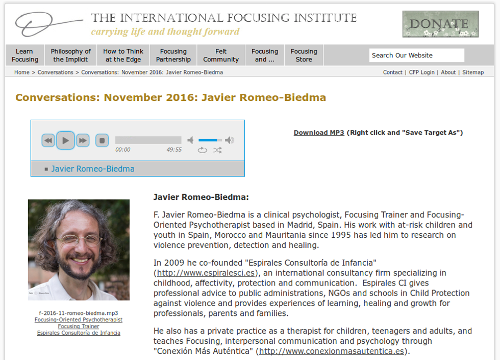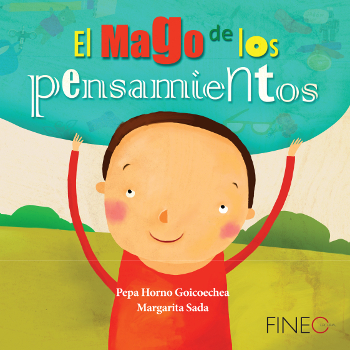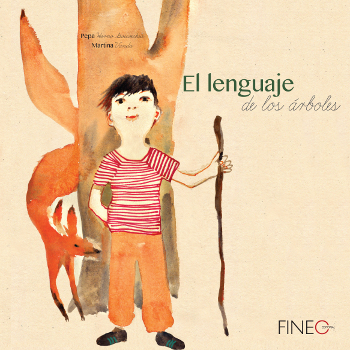Label: CI Spirals
Manual “Accompanying the wounds of the soul. Trauma in childhood and adolescence”
12 November 2019.
Tags: Agenda actual, Education, CI Spirals, Eugene Gendlin, My Classifieds, Psychotherapy, Therapy, Trauma
As a psychologist I divide my professional time between clinical practice accompanying people in their therapeutic process in Madrid and advice and training organizations related to the protection of children, and adolescents from Espirales Children Consulting. That's why I am pleased to present the manual Accompanying the wounds of the soul. Trauma in childhood and adolescence, I have prepared for the Regional Office of SOS Children's Villages in Latin America and the Caribbean.
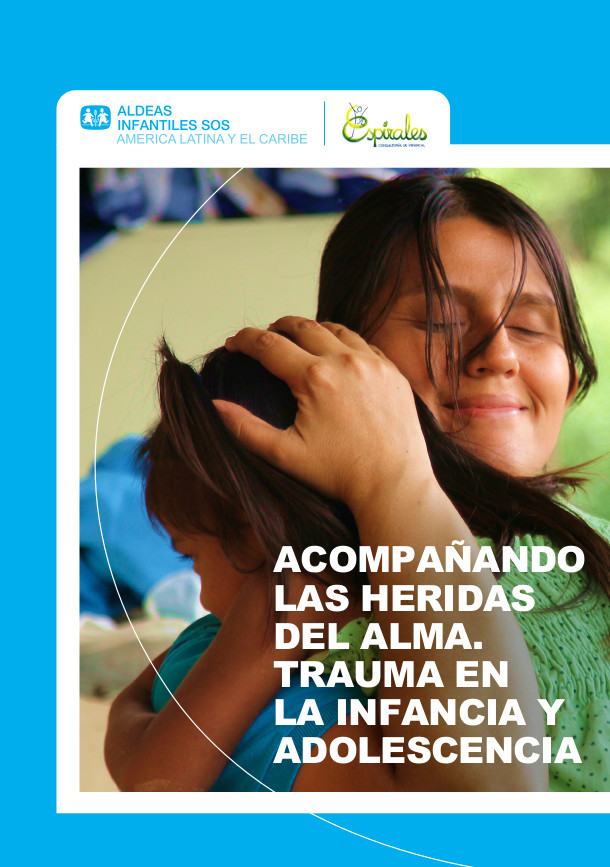 For more details on this publication, its contents and other publications related to child protection, you can read this blog entry Espirales CI.
For more details on this publication, its contents and other publications related to child protection, you can read this blog entry Espirales CI.
Two versions of the document:
- Accompanying the wounds of the soul. Trauma in childhood and adolescence, a single page (comfortable printer for printing and reading in mobile or tablet).
- Accompanying the wounds of the soul. Trauma in childhood and adolescence, a double page (to see on the big screen or for printing on printing).
In this blog I have only to add that the explanation of the trauma as a process is based on A process model (A Process Model) Eugene Gendlin de, and explanations of emotional blockages that have met the trainers and coordinators Focusing Ann Weiser Cornell and Barbara McGavin. You can find citations to specific sources on pages 16-20 of the text.
I hope the good results.
Taller “Focusing, body and safety: Focusing for the prevention of violence” in Madrid 11 and 12 of November 2017
12 November 2017.
Tags: Agenda filed, Education, CI Spirals, Focusing, Focusing in Spain, Focusing en Madrid, Training, For parents
Raise awareness of the body as a place of protection against violence is one of my key professional priorities. This workshop, “Focusing, body and safety: Focusing for the prevention of violence” I combine my job more than a decade dedicated to protecting children against various types of violence (the last eight years Spiral Consulting Children) with technical power Focusing, which it has helped me both personally and professionally.
Focusing may provide a new way to create security in our lives through the body. All people we want to be treated well, with respect and consideration. However, witness violence at various levels frequently. If we are also in contact with children, and adolescents, both in our families and from our work, we see many situations of violence and ask ourselves how to prevent it. This workshop is geared to work so vivencial an operational concept of violence with an experiential base from the body. So we can identify violence from our body while we can act more clearly and protective way in our lives and in our professional field.
This workshop is aimed at people interested in learning more about how to manage violence from a safe position within the body, both personally and professionally (social intervention specialists from psychology, psychotherapy, social work, educación…). Focusing prior knowledge they are not needed (although it will be an advantage). This workshop is a recognized monograph for obtaining the Diploma in Focusing of Focusing Spanish Institute.
Date: sábado 11 November 2017 of 10:00 a 14:00 and of 16:00 a 20:00 and Sunday 12 November 2017 of 10:00 a 14:00.
Place: Space “Spend this is your home”
C / Costa Brava, input C / La Masó 2, plant 1, local 8
28031 Madrid
(Metro Paco de Lucía, line 9; buses 133,134 and 178)
Price: 170 euros.
More information and registration Focusing Centro, organized training: focusingcentro@gmail.com
I hope that is of interest,
[Original entry 16 October 2017, actualizada a 12 November 2017, date formation].
My interview “Focusing and how to work experientially with issues of violence” International Focusing Institute
14 November 2016.
Tags: Agenda actual, CI Spirals, Focusing, Focusing international, In English, My Classifieds, Psychotherapy, Therapy, Textos Focusing, Experiences
A deep sense of honor and a clear feeling of humility and shyness arise in me as I share this interview. I can clearly feel the responsibility of talking about the work I do on “Focusing and how to work experientially with issues of violence” (“Focusing and how to work experientially with violence”), as the English title of the conversation says. It is an important topic for me (I work a lot on it through Spiral Consulting Children, the consultancy specialized in Child Protection of which I am a founding partner), and trying to convey all the nuances is always a challenge.
International Focusing Institute (The International Focusing Institute, the organization that coordinates at an international level the activities related to training and dissemination of Focusing) promotes “Conversations” (English) with Focusing professionals from around the world. Serge Prengel, a Focusing Trainer and Focusing-Oriented Psychotherapist whom I met at the International Focusing Conference 2016 Cambridge (United Kingdom), acts as host, and he does it in a very Focusing way - with an empathic reflex, with pauses, allowing new ideas to emerge and unfold at their own pace–.
In this “Conversation” you will find that we discuss topics such as the following:
- Violence as a stopped process (“Something would have to have happened to move the situation forward, but it didn't happen, so that the process is blocked”).
- Damage defines violence, and the damage is experienced from the body.
- Find a “handle” (“handle”) for violence (identify her) is the first step to get out of it: For this, it is necessary to become aware of the cultural patterns that make us normalize violence.
- The role of power in violence.
- Affection coupled with care as a way to avoid violence –and the bodily dimension that can be achieved through Focusing–.
- Detection and intervention in cases of violence in Child Protection.
- A message of hope regarding the possibilities of healing and transforming violence, and Focusing as a magnificent tool to do it.
And if you want to experience how to transform the experience of violence from the body through Focusing, I am available for specific sessions the for psychotherapy in Madrid.
I hope you can find some ideas that inspire your own experiential work on violence, and I would love to hear your reactions to it.
My interview about “Focusing and how to work experientially with violence” for The International Focusing Institute
14 November 2016.
Tags: Agenda actual, CI Spirals, Focusing, Focusing international, In English, My Classifieds, Psychotherapy, Therapy, Textos Focusing, Experiences
A deep sense of honour and a distinct feeling of humility and shyness come to me when I share this interview. I can feel clearly the responsibility of talking about the work I do about “Focusing and how to work experientially with violence”, as the title of the conversation says. It is an important subject for me (I work a lot about it through Spiral Consulting Children, the international consulting firm specializing in Child Protection I co-founded), and trying to convey all its nuances is always a challenge.
The International Focusing Institute (the organization that coordinates internationally Focusing activities related to training and diffusion) fosters bimonthly “Conversations” with Focusing professionals all over the world. Serge Prengel, a Focusing Trainer and Focusing-Oriented Psychotherapist that I met at the International Focusing Conference 2016 in Cambridge (UK), acts as the host, and he does so in a very Focusing way –reflecting, with pauses, letting new ideas appear and develop in their own time.
In this “Conversation” you will find discussed issues like the following ones:
- Violence as a stopped process (“Something should have happened to carry forward a situation, and it did not occur, so the process gets stuck”).
- Harm defines violence, and harm is lived from the body.
- Finding a handle for violence (identifying it) is the first step out of it: becoming aware of our cultural patterns that normalize violence.
- The role of power in violence.
- Affection linked to care as a way to avoid violence –and the bodily dimension that can be reached through Focusing.
- Violence detection and intervention in Child Protection.
- A message of hope about healing and transforming violence, and Focusing as a wonderful tool to do it.
I hope that you will find an idea or two that might inspire your own experiential work about violence, and I will love to hear from you about it.
Read this entry in Spanish (although the interview itself is in English).
Focusing workshop on prevention of violence at the International Conference Focusing 2016 Cambridge (United Kingdom)
23 July 2016.
Tags: Agenda filed, CI Spirals, Focusing, Training, In English, Psychotherapy, Therapy
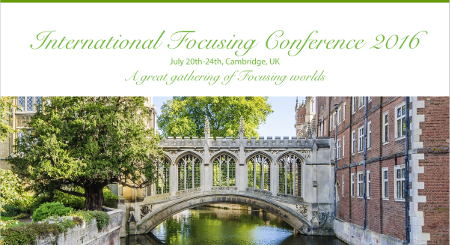 Taller “Finding a Handle for Violence In Our Lives” (“Finding a foothold for the violence in our lives”) on the application of Focusing for the prevention of violence in 27ª International Conference on Focusing of 2016 Cambridge (United Kingdom), organized by the British Focusing Association, and open to members of the International Focusing Institute (The Focusing Institute) of all the world.
Taller “Finding a Handle for Violence In Our Lives” (“Finding a foothold for the violence in our lives”) on the application of Focusing for the prevention of violence in 27ª International Conference on Focusing of 2016 Cambridge (United Kingdom), organized by the British Focusing Association, and open to members of the International Focusing Institute (The Focusing Institute) of all the world.
Date: New date: sábado 23 July 2016, of 11:00 a 13:00.
Place: Robinson College
Cambridge
United Kingdom
Description: When we work with children, adolescence and youth, with populations at social risk, in social intervention environments, with clients in therapy, we can see the effects that violence has on their lives. In this workshop we are going to work in an experiential way to find a foothold for violence in our own lives as a first step to prevent and detect situations of violence.. We are going to explore how to identify violence from a Focusing body perspective to empower ourselves –and thus transform the violence around us–.
Addressed to: professionals (of psychology, of therapeutic intervention, of Education, of social work, etc.) who work with children, girls, adolescents and young people, with populations at social risk, with clients in therapy; people working for social change (in associations, foundations, etc.); and general public interested in managing violence in new ways.
facilitator:
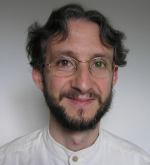 F. Javier Romeo-Biedma is a clinical psychologist, is certified as a Focusing Trainer and as a Focusing-Oriented Psychotherapist, en Madrid, Spain, and is an international consultant on Child Protection, Affectivity and Interpersonal Communication in Spiral Consulting Children (an international consulting company that trains and advises on Child Protection). Your work with children, girls, adolescents and young people at social risk in Spain, Morocco and Mauritania have led him to investigate prevention, detection and healing of violence (and that includes a deep experience in Nonviolent Communication). He also practices psychotherapy and teaches Focusing, Nonviolent Communication and Psychology in More Authentic Connection. He has given training in Spanish (your mother tongue), English, French and Moroccan Arabic.
F. Javier Romeo-Biedma is a clinical psychologist, is certified as a Focusing Trainer and as a Focusing-Oriented Psychotherapist, en Madrid, Spain, and is an international consultant on Child Protection, Affectivity and Interpersonal Communication in Spiral Consulting Children (an international consulting company that trains and advises on Child Protection). Your work with children, girls, adolescents and young people at social risk in Spain, Morocco and Mauritania have led him to investigate prevention, detection and healing of violence (and that includes a deep experience in Nonviolent Communication). He also practices psychotherapy and teaches Focusing, Nonviolent Communication and Psychology in More Authentic Connection. He has given training in Spanish (your mother tongue), English, French and Moroccan Arabic.
[Original entry 27 May 2016, actualizada a 23 July 2016, date of the workshop].
Workshop “Finding a Handle for Violence In Our Lives” at the International Focusing Conference 2016, Cambridge (UK)
23 July 2016.
Tags: Agenda filed, CI Spirals, Focusing, Training, In English, Psychotherapy, Therapy
 Workshop “Finding a Handle for Violence In Our Lives” at the 27th International Focusing Conference 2016 in Cambridge (UK), organised by the British Focusing Association, open to members of The Focusing Institute from all over the world.
Workshop “Finding a Handle for Violence In Our Lives” at the 27th International Focusing Conference 2016 in Cambridge (UK), organised by the British Focusing Association, open to members of The Focusing Institute from all over the world.
Dates: New date: Saturday 23rd July 2016, from 11:00 to 13:00.
Place: Robinson College
Cambridge
United Kingdom
Description: When we work with children and youth, with at-risk populations, in social settings, with clients in therapy, we can see the effects of violence in their lives. In this workshop we will work experientially to find a handle for violence in our own lives, as the first step to prevent and detect situations of violence. We will explore how to identify violence from a Focusing and embodied perspective to empower ourselves –transforming violence around us.
Target audience: professionals (psychologists, therapists, educators, social workers, etc.) working with children and youth, with at-risk populations, with clients in therapy; people working for social change (associations, foundations, etc.); and general public interested in dealing with violence in new ways.
Facilitator:
 F. Javier Romeo-Biedma is a clinical psychologist, Certified Focusing Trainer and Psychotherapist based in Madrid, Spain, and an international consultant on Child Protection, Affectivity and Communication at Spiral Consulting Children (an international consultancy firm he co-founded that provides training and assessment in Child Protection). His work with at-risk children and youth in Spain, Morocco and Mauritania has led him to research on violence prevention, detection and healing (including a deep experience in Nonviolent Communication). He also has a private practice and teaches Focusing, Nonviolent Communication and Psychotherapy at More Authentic Connection. He has taught in Spanish (his mother tongue), English, French and Moroccan Arabic.
F. Javier Romeo-Biedma is a clinical psychologist, Certified Focusing Trainer and Psychotherapist based in Madrid, Spain, and an international consultant on Child Protection, Affectivity and Communication at Spiral Consulting Children (an international consultancy firm he co-founded that provides training and assessment in Child Protection). His work with at-risk children and youth in Spain, Morocco and Mauritania has led him to research on violence prevention, detection and healing (including a deep experience in Nonviolent Communication). He also has a private practice and teaches Focusing, Nonviolent Communication and Psychotherapy at More Authentic Connection. He has taught in Spanish (his mother tongue), English, French and Moroccan Arabic.
See this same entry in Spanish.
[Original post of May 27th. 2016, updated on July 23rd. 2016, date of the workshop].
Story “The Wizard of thoughts” Pepa Horno on listening to the body by caressing
11 July 2016.
Tags: Education, CI Spirals, Focusing, For boys and girls, For parents, Textos Focusing, Other Texts
In line continue to celebrate the publication a year ago tales of Pepa Horno, my good friend and partner in Spiral Consulting Children (where we work on issues of affective education in childhood), This complements entry the previous one, referring to his book The language of trees. this story, The Wizard of thoughts, It has been published by the Editorial Phineus with illustrations Margarita now.
Pepa same account his intention for this book with the following words:
The Wizard of thoughts He speaks of fondling, and how caresses and massages serve to emotional self-regulation, for these children than adults say they still do not stop, who fail to sort their thoughts, or silence them or concentrate ... For these children have a "magic" trick to put some order within himself. In those thoughts that basically are but the fruit of his extraordinary sensitivity.
To this I add that it is a story that can be adapted perfectly to teach Focusing boys and girls for the following reasons:
- Presents a positive and welcome sight of thoughts, sensations, feelings, emotions and experiences in general with children (and we also have adults): what is within us it makes sense if you provide adequate listening.
- Children can do concrete things to pay attention to their internal experiences, so these calm down (and, although not explained in the story, Also to be deployed), and those who are around him can accompany.
- Internal experiences are accompanied by more effectively with any physical action. Pepa proposed in the story caresses the areas involved (head of the protagonist, in this case), but explained on the last page, “Words for the soul of adults”, there may be many other ways, whenever it involves the body.
So I heartily recommend this book as a way to present the Focusing in a manner adapted to children.
I hope you will like it as much as me,
Xavier
Story “The language of trees” Pepa Horno to accompany the child duel (and for all ages)
13 June 2016.
Tags: Mourning, CI Spirals, For boys and girls, For parents, Other Texts
It has recently completed the first anniversary of the publication of the story The language of trees of Pepa Horno, my dear friend and partner in Spiral Consulting Children (where we work on child protection issues). this story, published by the Editorial Phineus and illustrated by Martina Vanda, had several presentations, and the first was in the Book Fair of Madrid 2015 at this time, so I thought proper to remember with this blog.
Pepa presents the book as follows:
The language of trees about death. Or rather on the thread of love that binds either side of life. He speaks of people who have the heart divided, "Half on land and half in heaven", and it is written for many children (those who are children now and those other children hidden under the skin of adults) with his heart so.
I want to highlight three aspects that recommend this story (and that is why I have already given more than one occasion):
- The importance of discovering a symbolic link to the deceased, can be grown in life or after death has occurred. Never too late to create a ritual that produces us feeling connected to those we still alive.
- Body dimension bereavement, masterfully displayed targeted. Take a walk, move around the field, gestures with the body… It helps us to better process losses, regardless of age.
- Tenderness that permeates the work invites us to take care of the relationship in every situation of mourning with all children: with those who are age, and who took our children and girls indoor inside (and also they need your attention).
For all this and much more is a book I consider recommended reading, and especially to have on hand when losses occur in the environment.
Hope you enjoy it as much as the IM.
Xavier
my article “Play the yes’ in the 'no'” (2011)
14 December 2015.
Tags: CNV, Interpersonal communication, Education, CI Spirals, My Classifieds, For parents, Texts CNV
This weekend I had the honor of participating in the I Congress on Emotional Education Navarra, organized by Formed parents. It was a conference organized with great interest, with great care and a good dose of courage. My presentation was specifically about “Affective education that protects against sexual abuse”, one of the themes that work from Spiral Consulting Children, of which I am a founding member. But in the end there was a panel discussion with questions for all speakers, we were sharing with the moderation of Sonsoles Echevarren, journalist from Diario de Navarra. It was a very interesting time, and although the questions were addressed to each speaker, at the end there were many in which we participate several more. In this context a very interesting question arose, “How do you listen to a child who refuses to leave the park?”. interesting and valuable answers were given, and I brought my contribution: “Listening yes’ in the 'no'”.
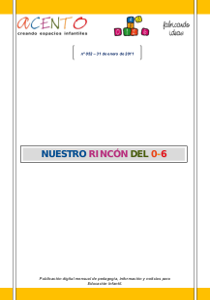 Rescue in this blog because my article 'Listen to “yes” in the “no”‘, which it was published in the number 52 (January 2011) Magazine Our corner of 0-6, published by ACCENT (He continues no longer releasing new numbers, although still available). This article development more broadly what I argued then: When a person (and a boy or girl is also a person) dice “no”, He is saying “yes” many things, and if we listen to the entire message, we can create a deeper connection and find a satisfactory solution for all parties. The article begins:
Rescue in this blog because my article 'Listen to “yes” in the “no”‘, which it was published in the number 52 (January 2011) Magazine Our corner of 0-6, published by ACCENT (He continues no longer releasing new numbers, although still available). This article development more broadly what I argued then: When a person (and a boy or girl is also a person) dice “no”, He is saying “yes” many things, and if we listen to the entire message, we can create a deeper connection and find a satisfactory solution for all parties. The article begins:
mother, two and a half years, She does not want her coat to go outside. Joseph, four years, You do not want to lose the swing to go home. Irene, of five years, He does not want to go to sleep. Why not do those things that as adults we seem perfectly reasonable?
And what do we do next? ¿We yield and do what they want? Then we feel bad because we are not working to their education, and also it gives us the feeling of leaving aside what we as people also want. Would you force them to do what we want? Then we have guaranteed discussion and bad environment for a long time, long term and we are teaching them that in the end the important thing is to have power or strength, and that dialogue only serves when it is weak. In my personal and professional experience there is a third way, based on a deeper communication in each of these situations. And one of the skills that we developed in the workshops I facilitate is the ability to listen to what they say “yes” our children when they say “no”.
Download the full article “listen to the “yes” in the “no”‘
Hope you find it interesting.
Xavier
Celebrating 80 anniversary of Marshall Rosenberg, creator of Nonviolent Communication
20 October 2014.
Tags: CNV, Interpersonal communication, CI Spirals, Experiences, Webs
Last 6 October Marshall Rosenberg, the creator of the Nonviolent Communication, has fulfilled eighty and who have experienced the benefits of their work we are celebrating.
Marshall B. Rosenberg He was born 6 October 1934 in Canton, Ohio (U.S), and the family moved in 1943 a Detroit, Michigan, shortly before the race riots of that year. Marshall tells how the experience of violence marked him. Also experienced violence at school, to being identified as a Jew by his surname. As he himself, he discovered that there are people who can enjoy harm. And at the same time, He could see how other people were able to move with compassion for extremely tough situations (her grandmother, During the crisis was able to feed people in the street; or his uncle, I was able to feed and heal and elderly grandmother).
Later studied psychology and obtained his doctorate with Carl Rogers 1961, definitely qualifying itself as a clinical psychologist in 1966. However, the focus of clinical psychology did not satisfy him, with the emphasis on labels and diagnoses. He continued researching and forming (It was also formed in Focusing, and made it recommends in its advanced training), and at the end he created the process Nonviolent Communication as we know it.
Since the eighties has worked internationally both for mediation in serious conflicts and to develop conflict resolution skills smaller in our daily lives, conflicts with others and internal conflicts. A few years ago it has retired, after making hundreds of formations in the world and have founded International Center for Nonviolent Communication (Center for NonViolent Communication) to spread this process as transformer. You can read more about his life and where he has worked in the Website of the International Center for Nonviolent Communication (Center for NonViolent Communication).
I had the pleasure of formarme with him, with his wife Valentina and other trainers in an Intensive International Training (International Intensive Training) nine days in Switzerland in August 2008, and I could receive warmth and how he encouraged me to try to convey my understanding of Nonviolent Communication to children and people who are in contact with them. Much of my work has since been inspired by what I learned from him, both to create a More Authentic Connection in the lives of all people (including mine), and in the lives of children, and adolescents with whom they come in contact, and people who are around (especially through Spiral Consulting Children, in line Interpersonal communication). In this training we talked Certification, and although the end is a way I have not followed, I feel part of the movement of Nonviolent Communication and continue working with the Association for Nonviolent Communication here in Spain and other groups and learning practices.
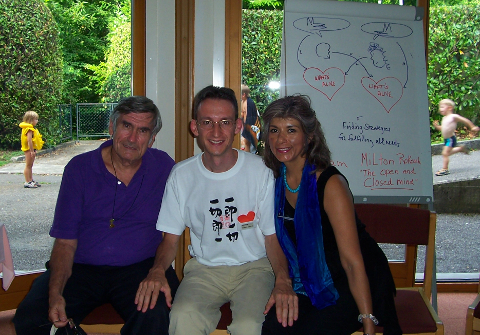
At that time we took this photo, coincidences of fate, portrays in Marshall, Valentina and me with two children and no recognizable girl, as symbolizing specially working with children that took place with the inspiration of Marshall and Nonviolent Communication.
From here I send my thanks and tribute. Thank you, Marshall!
With deep gratitude I send my celebrative homage. Thank you, Marshall!
Xavier
